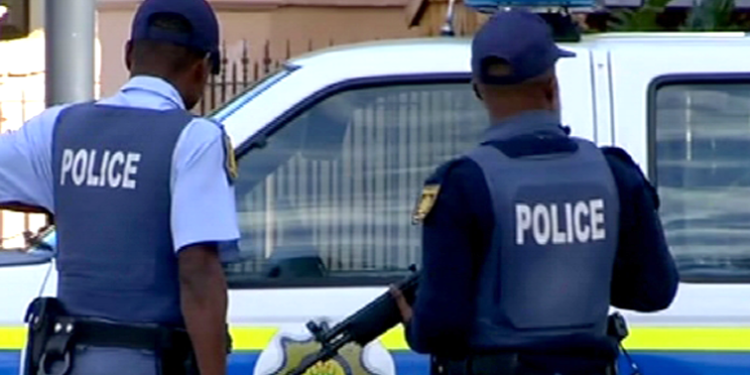A plethora of issues have undermined South African democracy and standards of living, but a ‘broken’ police force might be the single biggest threat to the nation, according to an expert and social justice activist.
In South Africa, much like any other country in the world, the police have far-reaching powers. They have a mandate to prevent and solve crime, except in this country, “they’re not doing it,” said Professor Mary de Haas.
The claim that the broken state of policing is the biggest threat to South Africa may be met with contestation. It is against the backdrop of a debilitating energy crisis and ongoing water issues, as well as rampant corruption that has pervaded most state institutions.
However, De Haas, a retired academic and prominent violence researcher, argued that inept policing quite often led to those issues in the first place.
Regarding loadshedding, she said, “You must understand too [that] the electricity crisis is exacerbated by criminality. The sabotage of Eskom infrastructure is so widespread. This is a criminal activity and if the police were functioning properly, they would be onto this”.
In an article published by the Daily Maverick, De Haas blamed a lack of Parliamentary oversight and failure to act upon high-level reports as some of the reasons for inept policing in South Africa.
SMread: NERSA grants Eskom 33% price hike over two years
Corruption and politicisation
In an interview with Salaamedia, De Haas identified corruption as a key source of the police force’s inability to tackle crime. She said crime hampered their ability to reign in crime, with nepotistic appointments undermining policing functions.
She stated that the nepotistic network within police ranks meant that “people in national management are not qualified for the job”. She further said police have become accustomed to taking instructions from politicians as a result.
“The police are just used to taking political instructions. There’s too much power in the hands of the minister who should be in the office making sure policy is on track, making sure the national commissioner is doing his job.”
According to De Haas, corruption became rampant within SAPS around 2009. It added to the difficulties brought about by the already-challenging task of adjusting the force to democratic policing.
“We’ve always had a bit of a problem getting the old, brutal South African Police (SAP) transformed into a democratic order. That’s an old problem and we were limping along until 2009 and then the corruption escalated. Friends [and] political cadres were being put in at senior levels – the whole police service was being politicised.
“You’ve got all the wrong people in management. It’s corruption, corruption, corruption,” she said.
De Haas went on to state that legislative changes initiated by the Jacob Zuma administration, including the removal of civilian oversight of intelligence services, led to ministers getting involved in the operational affairs of SAPS. She said these needed to be reversed.
“The Intelligence Oversight Committee should have passed legislation to undo the legislative damage done by [Jacob] Zuma. That hasn’t been passed. If Parliament doesn’t exercise oversight, nothing will change. Parliament is not working and we’ve got to make it work,” she said.
SMread: South Africans should be wary of scammers
Poor standards in police force
De Haas suggested that part of the problem of a broken police force was poor standards. Police officers were often unable to perform their duties to a satisfactory level and police stations were ill-equipped.
“Anywhere you look, there’s a theme that the police should be onto it. Every station should have a crime intelligence service picking up who the local thugs are, gathering information and pre-empting it with patrols and building strong cases – not just arresting people without evidence.”
Furthermore, SAPS is stretched thin as the number of officers within its ranks continues to decline. According to SAPS, there are 140,000 officers serving a population of 60 million. To make matters worse, ongoing budget constraints mean only 15,000 new police recruits can be trained over the next three years while there were 10,000 expected retirements and resignations in 2022.
De Haas also noted the poor levels of literacy among police, saying many did not even know how to follow proper procedure.
“Some of them seem barely literate. You go into a police station to get an affidavit signed [and] they don’t have a stamp or they don’t know what the proper procedure is,” she said.
She called for Parliament to fulfil its oversight job to ensure the broken state of policing could be fixed before matters got any worse.
